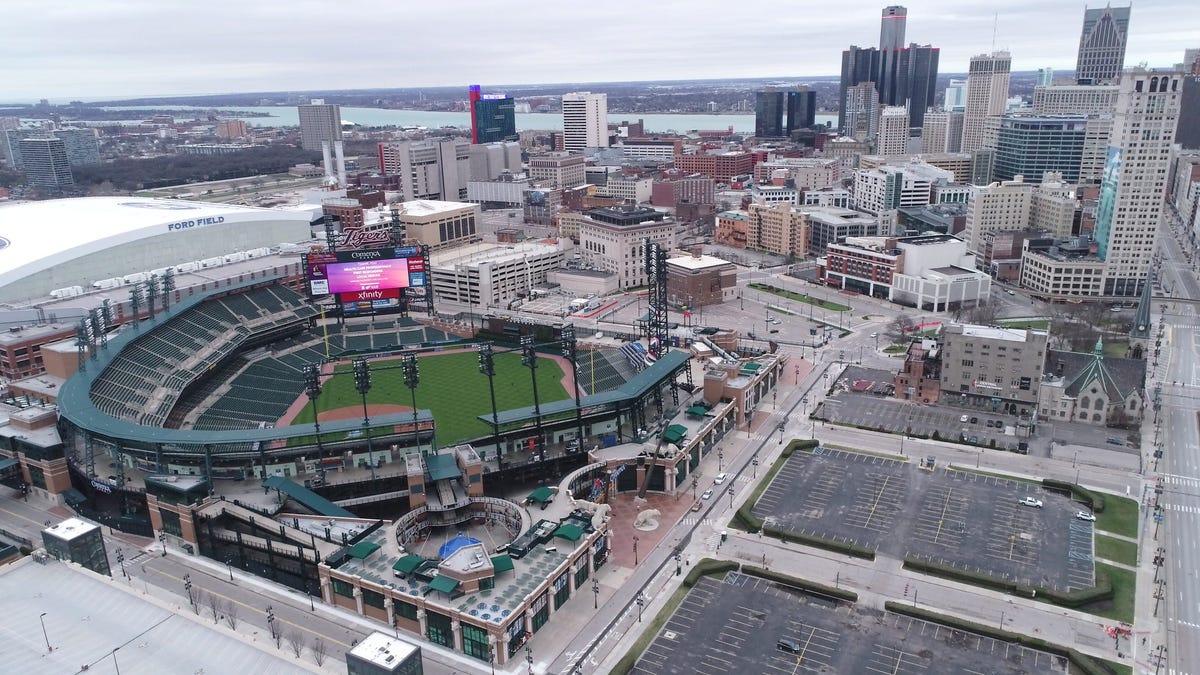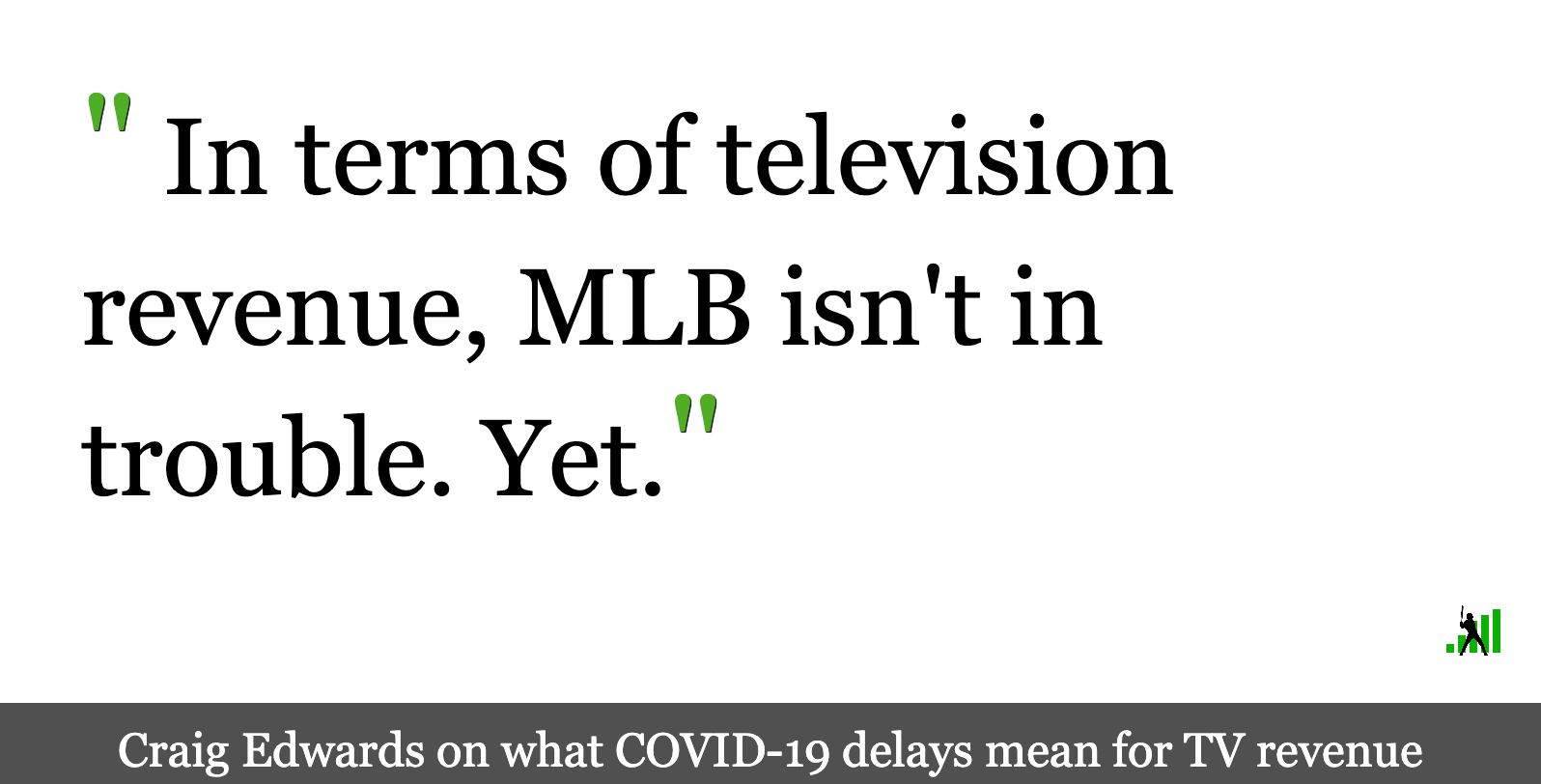This Fangraphs thing will probably answer a lot of questions. And there is some other stuff out there also
MLB is bound to lose revenue in 2020, but that television money might still be there.

blogs.fangraphs.com
But this is the gist of it - National TV revenue goes into a big pot and gets shared by the teams. But the Networks air few regular season games national. Fox has one on Saturday, and TBS has one, and I believe and ESPN does Sun night baseball. So limited exposure nationally during the regular season. But the big bucks for the TV rights are for postseason. The rest of the regional broadcast rights are by individual teams and there local broadcaster.
Now when these networks buy the rights, that money is spread over the length of the contract and that is the revenue stream that the owners clearly have even if the contract was negotiated several years back. Regular season games are kind of a wash as far as income generation and are looked at as subscriber builders for their cable deals with distributors, so claw backs for the regular season is not very realistic. But post season is where the bucks you see for the TV deals are based upon and where owners do have claw back exposure.
In the post season players are only paid by the revenues AT THE GATE. The whole post season pot for players is determined by ticket sales - not concessions or merchandize or parking (which all goes directly to the teams that are actually playing) or TV. So players get a portion of the gate only. So the teams have NO POST SEASON player payroll costs. But 15% of that gate goes to the commissioners office. And that 15% pays expenses for the post season production and offsets teams cost for paying the commissioner and staff. So it reduces any costs the teams incur => in essence it is distributed to all the teams through a back door. And all the TV revenues for post season go to the league office directly and are part of the distribution to the teams.
So all teams have two income streams during the post season => % of the gate and post season TV. And none of them have a single cost for players salaries. In addition, the teams playing in the post season get an additional % of the actual gate, plus concessions, parking, and merch.
That is why the post season is of so much interest to all the teams. NO PLAYER COSTS and big revenue streams. And that is what will drive the owners to have enough regular season games to get a post season, because they do not want the networks trying to claw back the missing post season game money that their bids for the rights are really based on.
And that is where the 60 game sweet spot comes from. Any losses incurred by fan-less games in the regular season get more than made up for by having a post season and fulfilling on the contracts with the networks that bought the rights to those games. Additionally, adding another layer of post season play gives MLB something they can give FOX and ESPN to make up for the loss of regular season broadcasts and not face claw backs. But the players share IN NONE OF THAT MONEY. And when you sit on the players side, and start talking about revenue sharing, but you have no part in these TV deals, it changes the way these offers made by the owners really look.


